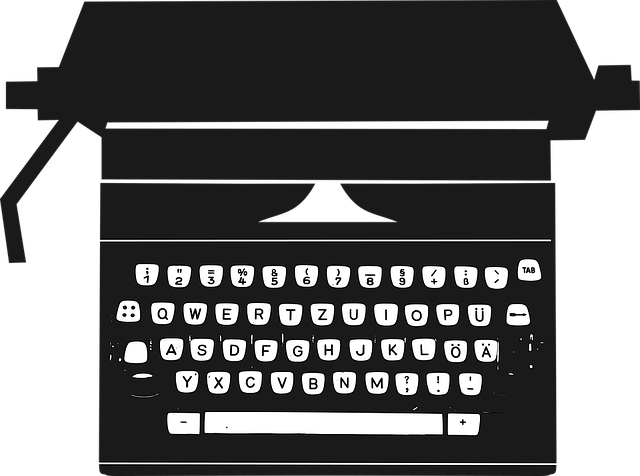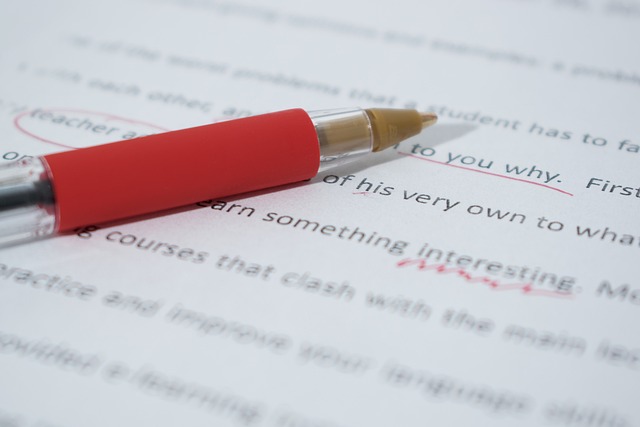

Crafting Essays: How to Write a Block Essay
My name is Debbie, and I am passionate about developing a love for the written word and planting a seed that will grow into a powerful voice that can inspire many.

Crafting Essays: How to Write a Block Essay – Unlocking the Key to Seamless Writing
Whether you’re a seasoned writer or just starting to explore the world of essay composition, one thing remains consistent: the dreaded writer’s block can strike at any time. As you sit down to write a thought-provoking essay , your mind falls into a seemingly impenetrable abyss, leaving you staring blankly at a blinking cursor. Fear not, for in this article we will delve into the art of crafting block essays, unlocking the secrets to transforming your words into a seamless and engaging masterpiece. So, grab your pen and paper (or your trusty keyboard) as we embark on a journey to unravel the mysteries of the block essay and discover the joy of effortless writing.
– Understanding the Basics: What is a Block Essay and How Does it Differ?
– choosing a suitable topic: examining the key considerations, - structuring your block essay: a step-by-step guide to coherence and flow, - craftsmanship at its best: tips for writing convincing block essay introductions, – mastering the art of comparison: strategies for effective block essay body paragraphs, mastering the art of comparison: strategies for effective block essay body paragraphs, fine-tuning your block essay: crafting a conclusion that leaves an impression, – polishing your gem: proofreading and editing techniques for flawless block essays, frequently asked questions, in retrospect.
A block essay is a unique type of essay structure that differs from the traditional format in several ways. In a block essay, the content is divided into distinct sections or blocks, each covering a specific aspect or topic related to the main theme. Unlike traditional essays, where paragraphs are used to present arguments or evidence, a block essay organizes information into separate blocks, creating a visually distinct and easily comprehensible format.
One of the key differences of a block essay is the use of headings or subheadings to introduce each block. These headings provide a clear indication of the content that will follow and help readers navigate through the essay effortlessly. Additionally, within each block, information is presented in a focused manner, with each paragraph discussing a different aspect of the topic. This enables readers to quickly grasp the main ideas without feeling overwhelmed by dense paragraphs.
Another notable characteristic of a block essay is the use of white space, which enhances readability. By leaving space between the blocks, the essay becomes visually balanced and appealing to the reader. Moreover, a block essay often incorporates visual aids, such as images or charts, to further enhance understanding and engagement. These visual elements not only break up the text but also provide additional context or evidence that supports the main points being discussed. Overall, the block essay format offers an alternative way of presenting information, making it easier to digest and comprehend the content at a glance.
When it comes to choosing a suitable topic, there are several key considerations that one should keep in mind. These factors play a crucial role in ensuring that your selected topic is engaging, relevant, and captivating for both you as the writer and your target audience. Let’s delve into some of the most important considerations:
Choosing a topic you are passionate about is essential. When you genuinely care about the subject matter, it will reflect in your writing and captivate your audience. Your enthusiasm will shine through, making the entire writing process more enjoyable and rewarding.
Consider the relevance of the topic in relation to your target audience. Will it resonate with their interests or needs? Is it a trending or popular subject? Conducting some research and understanding your readership’s preferences will help you select a relevant and engaging topic that holds their attention.
Assess the scope of the topic you’re considering. Is it too broad or too narrow? Striking the right balance is crucial to ensure that you can cover the subject matter adequately without overwhelming yourself or your audience.
By carefully considering these key factors, you will be well on your way to choosing a suitable topic that not only ignites your passion but also resonates with your target audience. Remember, a well-chosen topic forms the foundation for a successful and impactful piece of writing!
Structuring Your Block Essay: A Step-by-Step Guide to Coherence and Flow
Creating a well-structured and coherent essay is essential for effectively conveying your ideas and arguments. By following a step-by-step approach, you can ensure that your block essay flows seamlessly and captivates your reader. Here are some useful tips to help you structure your essay with clarity and enhance its overall coherence.
1. Begin with a Clear Introduction: Start by introducing your topic and providing a thesis statement that states your main argument. Make sure to grab your reader’s attention with a compelling opening sentence or anecdote.
2. Divide your Essay into Blocks: In block essays, you present all the information about one topic in a single block, followed by another block for the next topic. This organization allows for a more structured and focused essay, making it easier for your reader to comprehend and follow your arguments. Use HTML formatting to visually separate your blocks, providing clear headings and subheadings that indicate the subject of each block.
3. Develop Strong Paragraphs: Within each block, begin with a topic sentence that clearly states the main idea of that specific section. Follow with supporting details, evidence, or examples that strengthen your argument. Use unnumbered lists to highlight key points or to group related information. Additionally, incorporate transition words like “furthermore,” “meanwhile,” or “on the other hand” to smoothly connect ideas and ensure a cohesive flow.
4. Conclude with a Solid Conclusion: End your block essay with a strong conclusion that sums up your main points and restates your thesis statement. Emphasize the significance of your argument and its implications in a concise and thought-provoking manner . Bold key phrases or statements that you want to highlight to make your conclusion more memorable.

Crafting a strong and convincing block essay introduction is vital to capturing your readers’ attention from the very beginning. With these tips, you’ll be able to showcase your writing prowess and engage your audience, ensuring a compelling start to your essay.
1. **Set the stage:** Begin your introduction by providing some context or background information on the topic. This can help your readers understand the relevance and importance of the subject matter. Consider including an interesting fact, a thought-provoking question , or a brief anecdote to pique their curiosity and make them eager to read further.
2. **State your thesis:** Clearly articulate your main argument or position in a concise and compelling manner. Your thesis statement should be the backbone of your essay and serve as a preview of the ideas you will explore in the subsequent paragraphs. Ensure that it is well-defined, specific, and debatable, as this will further engage your readers and encourage them to delve deeper into your essay.
3. **Present the scope of your essay:** Give your readers an overview of what they can expect from your essay. Outline the main points or arguments you will be discussing, providing a roadmap that guides them through the rest of your work. This helps create a sense of structure and organization, making it easier for your readers to follow along and comprehend your points effectively.

When it comes to writing block essay body paragraphs, mastering the art of comparison is essential. This skill allows you to effectively analyze and contrast two or more subjects, providing a balanced and organized essay. To help you enhance your writing, we have compiled a list of strategies that will take your block essay body paragraphs to the next level.
1. Thoroughly research and understand your subjects: Before diving into your writing, it is crucial to have a solid understanding of the subjects you are comparing. Research extensively to gather enough information and insights, enabling you to make accurate and informed comparisons.
2. Organize your thoughts with a clear structure: Structure plays a significant role in generating well-crafted block essay body paragraphs. Start by establishing a clear thesis statement that sets the context for your comparison. Then, organize your paragraphs by focusing on one aspect of the subjects at a time, presenting similarities and differences side by side for a comprehensive analysis.
- Fine-Tuning Your Block Essay: Crafting a Conclusion that Leaves an Impression
As you approach the end of your block essay, it is crucial to remember that the conclusion is your final opportunity to make a lasting impression on your reader. The conclusion serves as a powerful summary of your main points, so it’s important to craft it with utmost care. Here are some tips to help you create a compelling conclusion that will leave your audience impressed:
- Revisit your thesis: Start by restating your thesis statement in a concise and impactful manner. Remind your reader of the main argument you presented and its significance.
- Summarize main points: Summarize the key points you made throughout your essay. This will reinforce the ideas you’ve conveyed and provide a sense of closure to your reader.
- Leave a lasting thought: End your conclusion with a thought-provoking statement or a call to action related to your topic. This will leave your reader contemplating the subject matter long after they’ve finished reading.
Remember, your conclusion is your final chance to create a lasting impact on your reader, so make it count. By revisiting your thesis, summarizing your main points, and leaving a lasting thought, you can ensure that your block essay will end on a high note, leaving an indelible impression on your audience.

In order to ensure your block essays truly shine, it is crucial to dedicate time and effort to proofreading and editing. These essential techniques will help you eliminate errors, enhance your writing style, and deliver a flawless essay. Here are some valuable tips to polish your gem and take your block essays to the next level:
1. Take a break: After finishing your essay, step away from it for a while. This will allow you to approach your work with fresh eyes and a clear mind.
2. Read aloud: Read your essay out loud to yourself or to someone else. This technique will help you identify awkward sentences, clarify your thoughts, and catch any missed or repeated words.
3. Keep an eye on punctuation: Be sure to check your punctuation marks, including commas, periods, and quotation marks. Consistent and correct punctuation will greatly improve the overall flow and readability of your essay.
4. Focus on grammar: Pay attention to grammar rules and ensure that your tenses, subject-verb agreement, and pronoun usage are accurate. Consider using grammar-checking tools to assist you in this process.
5. Check for coherence: Look for logical connections between your paragraphs and sentences. Ensure that your ideas flow smoothly and that there are no abrupt transitions. Connectives, such as “however,” ”thus,” or “in addition,” can help strengthen the coherence of your essay.
6. Verify your sources: If you have included references, double-check that all your citations are accurate and properly formatted. This will lend credibility to your work and demonstrate your research skills.
Remember, the best block essays are the result of careful proofreading and editing. Implement these techniques to ensure your ideas are well-expressed, your arguments are clear and concise, and your essay captivates your readers. So get ready to refine your work into a true masterpiece!
Q: What is a block essay? A: A block essay is a type of essay structure that presents all the information about one subject first, and then discusses the other subject separately. It presents a straightforward comparison without intertwining the two subjects.
Q: Why would someone choose to write a block essay? A: Writing a block essay can be useful when you want to compare two subjects that are quite distinct and have little in common. It allows for a clear, side-by-side comparison, making it easier for the reader to understand the differences and similarities between the two subjects.
Q: How do I start writing a block essay? A: To begin, you should choose two subjects that you want to compare and contrast. Then, brainstorm the key points or characteristics of each subject that you will discuss in your essay. Once you have a solid understanding of both subjects, you can start outlining your essay.
Q: What should the structure of a block essay look like? A: A block essay generally has an introduction paragraph where you provide some background information and your thesis statement. This is followed by two or more paragraphs dedicated to one subject, presenting its key points and evidence. Afterward, there will be another set of paragraphs dedicated to the second subject. Finally, a conclusion paragraph wraps up the comparison by summarizing the main points and restating the thesis.
Q: Is there a specific order in which I should discuss the subjects? A: No, the order of subjects in a block essay is generally a matter of personal preference. Some choose to discuss the subject they feel more passionate about first, while others might opt for the subject that they believe will create a more impactful ending. Just make sure to maintain the same order throughout the essay for clarity.
Q: How can I make my block essay cohesive? A: To ensure a cohesive essay, use transitional phrases or sentences at the start of each new paragraph to guide the reader through your comparison. Additionally, make explicit connections between the subjects in your writing, highlighting similar or contrasting aspects. This will help the reader to comprehend your essay more easily.
Q: Can I use sources and references in a block essay? A: Absolutely! Including reputable sources and references will add credibility and depth to your essay. When using sources, be sure to properly cite them according to the appropriate citation style (e.g., MLA, APA) to avoid plagiarism.
Q: Are there any common mistakes to avoid when writing a block essay? A: One common mistake is the failure to provide a balanced comparison. Be sure to allocate an equal amount of space and attention to both subjects, so neither feels favored or neglected. Additionally, make sure your essay remains focused on the comparison and doesn’t drift into unrelated topics.
Q: What is the key to writing a successful block essay? A: The key to a successful block essay lies in thorough preparation, clear organization, and effective comparison. Take the time to fully understand the subjects you are comparing, maintain a logical structure, and provide strong evidence for your points. By doing so, you will create a well-crafted essay that engages and informs your readers.
In conclusion, mastering the art of crafting block essays is crucial for effectively conveying ideas and structuring arguments.
Effective Grant Writing and Program Evaluation: Learn the Skills
Writing Prompts Spring: Embrace Seasonal Inspiration

Leave a Comment Cancel reply
Save my name, email, and website in this browser for the next time I comment.
Reach out to us for sponsorship opportunities.
Welcome to Creative Writing Prompts
At Creative Writing Prompts, we believe in the power of words to shape worlds. Our platform is a sanctuary for aspiring writers, seasoned wordsmiths, and everyone. Here, storytelling finds its home, and your creative journey begins its captivating voyage.
© 2024 Creativewriting-prompts.com
Comparison and Contrast Essay: Block Method
There are two basic patterns writers use for comparison/contrast essays: the block method and the point-by-point method . in the block method, you describe all the similarities in the first body paragraph and then all the differences in the second body paragraph. the guideline below will help you remember what you need to do in each part of a comparison/contrast essay using the block method..
Block Method Student Essay
Fighting the Battle against Drugs
The use of drugs has increased in recent years, according to numerous articles in medical journals. They threaten communities all over the world because of how affect the organs of the body and their functions. Crack and cocaine are two of these dangerous drugs. Thus, it is important for health care professionals to have knowledge about them in order to deal with any problems related to their use that patients may experience. While they may appear similar at first glance, in fact they have three major differences.
Crack and cocaine have three similar effects on the human body. Although crack is heat resistant and cocaine is destroyed by heat, both cause hypertension. Also, crack and cocaine bring about physiological and psychological damage, depending on pre-existing conditions and the extent of drug use. For example, hallucination, psychosis, paranoia and aggressive behavior may occur, and an overdose of either may cause cardiac collapse or convulsion. Finally, use of both drugs can lead to addiction.
Despite crack and cocaine’s similarities, they have three major differences. First, although crack and cocaine are derived from the coca plant, they differ in form. Crack has the form of flakes whereas cocaine is found in the form of powder, which can be dissolved. Furthermore, both crack and cocaine contain cocaine, but in various percentages: crack contains as much as 90 percent pure cocaine whereas cocaine contains from 15 to 25 percent pure cocaine. Another major difference is how they enter the body. For example, crack is smoked in a pipe or cigarette. It enters the body by the lungs into the bloodstream. Cocaine, on the other hand, is inhaled as a powder or is injected if dissolved. It enters the body via the nasal mucosa into the bloodstream or, if injected, directly via the bloodstream.
In conclusion, it can be seen that, while being alike in three ways, these two drugs differ in three ways. They affect the body in similar ways. Both can lead to physiological problems such as convulsions and psychological problems such as hallucinations. Furthermore, their use may result in addiction. However, cocaine and crack differ in form, content of pure cocaine and method of entry into the body. Therefore, it is important that health care professionals know about these drugs.

IMAGES
COMMENTS
There are many ways of organizing a comparison and contrast essay. One of the most popular is the block method, also known as the summary approach or the one side at a time approach.
Sep 2, 2023 · Structuring Your Compare and Contrast Essay Using the Block Method. When it comes to crafting a well-structured compare and contrast essay, using the block method can be an effective approach. This method organizes your essay by discussing all of the points related to one side of the topic, and then exploring all the points related to the other side.
There are two ways to organize a comparison/contrast essay. A) Block Approach. This organizational pattern is most effective when used on short essays, such as in-class essays. The body of such an essay is organized by discussing one subject, point by point, in complete detail before moving on to the next subject. The writer should select points
Body Paragraphs: Arrange your paragraphs using either the block method or the point-by-point method: Block Method Organization: Each paragraph discusses all the points for one topic first, then does the same for the other topic. Introduction with Thesis; Body Paragraph 1 (or more): Topic A Point 1; Point 2; Point 3; Body Paragraph 2 (or more ...
2) Two Types of Block Organization A) Block Form When the type of information under one disease / condition is very different from the information under the second disease / condition: e.g. 1) All the information about disease / condition #1 is written. 2) A contrast expression is used when switching to disease / condition #2:
6 days ago · The most popular form of compare/contrast papers, Block organization is organized by discussing one subject, point by point, in complete detail before moving on to the next subject. The writer should select points by which both subjects can be examined. The number of body paragraphs will be determined by the number of points discussed in the essay.
Sep 23, 2023 · In block essays, you present all the information about one topic in a single block, followed by another block for the next topic. This organization allows for a more structured and focused essay, making it easier for your reader to comprehend and follow your arguments.
Block style organization is easier to follow for short essays, while the point -by-point approach is better suited to longer, more complex papers (Comprone 275; Fawcett 123- 124). Regardless of essay style, the purpose of a compare/contrast essay is to carefully examine and evaluate the similarities and differences between two or more things.
Adapted from The Comparative Essay, by V. Visvis and J. Plotnick, for The University of Toronto’s Writing Lab. Essay Structuring Patterns 1. Alternating method: Point-by-point pattern In the alternating method, you find related points common to your central subjects A and B, and alternate between A and B on the basis of these points (ABABAB …).
Block Method Student Essay . Fighting the Battle against Drugs . The use of drugs has increased in recent years, according to numerous articles in medical journals. They threaten communities all over the world because of how affect the organs of the body and their functions. Crack and cocaine are two of these dangerous drugs.